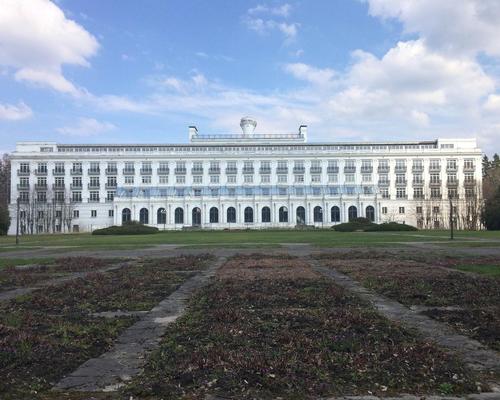06 May 2016
Inbalans creating Latvian wellness village in the centre of a forested national park
BY Jane Kitchen

Latvian wellness consultancy Inbalans Group is working together with Moscow-based international development company Griffin Partners and Jurmula City Council to develop a substantial wellness community in Latvia's Kemeri National Park.
The wellness community, located just west of the capital of Riga, will include a five-star hotel with a 1,500sq m (16,146sq ft) spa, due to open in 2018, as well as a wellness clinic comprised of multiple historic buildings with a focus on balneotherapy treatments, which is due to open in 2022. The wellness village will also include fertility, sleep and performance programmes, and the hotel will feature balneotherapy suites and a mineral water inhalation centre, in addition to the 12-treatment-room spa.
“This will be a different kind of luxury experience, based on local heritage and using healing sources, but also in a very private setting,” said Alla Sokolova, CEO and founder of Inbalans Group.
Kemeri is the source of natural mineral waters and curative muds, and has been a wellness destination since the 16th century. In the 19th century, as the curative properties of mineral waters and muds became well known, Russia’s Tsar Nikolai I opened the first state bathhouse institution in 1838, and in 1912, a direct railroad from Moscow to Kemeri was built, increasing the traffic to the town.
The five-star hotel is being developed in a historic 1936 health resort building that was originally built by Riga architect Eižens Laube as a symbol of Latvia’s first independence. Riga-based architect Martins Hermansons, who also designed the Pullman, Mercure and Kempinski Riga, is heading up the restoration of the Art Nouveau building.
During Soviet times, the historic building was turned into a sanatorium and significantly expanded – performing close to one million treatments a year, with about 100 doctors employed, said Sokolova.
The sanatorium ceased operations in the mid-90s after Latvia gained independence from the USSR, and the building was later bought by an Arab Sheikh, before being acquired by Griffin Partners.
“Our goal is not to restore the past, but to build on a strong base, looking into the future, analysing how we can create demand and appeal to tomorrow’s wellness travellers,” said Sokolova.
“Our aim is to look forward and see how we can create an open circular system, where people's health is put in the centre of all development decisions, developing a global destination in a place where one has the perfect setting to be completely immersed and connected to nature, but also experience a fascinating story of the rich heritage, culture, breathtaking architecture in combination with efficient, natural treatments from direct sources of the earth in combination with latest technological developments.”
Sokolova said there are also plans to create a smaller four-star hotel within the wellness village to open up treatments to a broader audience.
She also plans to create a “knowledge centre” in the national park, in collaboration with the city council, that will include state-of-the-art facilities blended with nature and host interactive exhibitions on science and natural history. A “Laboritorium” will allow guests – and children – to test the muds and waters and “understand the compositions and what it takes for a source to become healing,” said Sokolova.
The knowledge centre will also include art and performance pavilions and will serve as a base for working groups to come together to initiate research programmes on topics such as health and lifestyle.
Bicycle and walking routes will also be developed through the community and the park, and the city infrastructure will be developed using evidence-based principles of creating healthy communities, said Sokolova.
“We are excited to be part of this project of such significance, in our home base, as it reflects the passion behind the creation of Inbalans Group: to explore how ancient wisdom can be transformed into modern form, and how wellness concepts can be integrated into everyday life,” said Sokolova.
Close Window